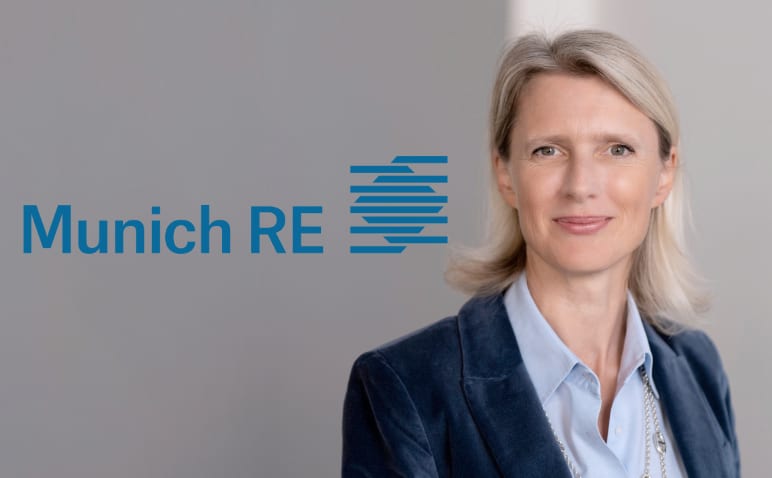Reinsurance still imbalanced, between capital supply and demand: Kopff, Munich Re

The global reinsurance market is still facing an imbalance between the rising demand for protection being seen and the fact inflows of capital to the sector remain sluggish, something Munich Re is not expecting to reverse any time soon, one of its executives said last week.
Speaking during a briefing held in advance of the annual Baden-Baden reinsurance meeting in Germany, Clarisse Kopff, Member of the Board of Management responsible for Europe and Latin America, explained that the supply-demand factor is expected to continue driving the renewal discussions at 1/1 2024.
“We’ve seen a high frequency, a high severity, in nat cats and man-made events, plus inflation and this is triggering a pretty substantial increase in demand,” Kopff said.
She continued, “If we consider just the additional demand in nat cat, in Europe it is considered to be around 5 billion, out of which 2 billion probably for Germany, it’s little bit too early to say, but roughly in that ballpark.”
Kopff went on to comment on the supply dynamics and what they look like in reinsurance at this time.
Saying, “We don’t expect big capital inflows, neither in the traditional reinsurance market where, as you’ve seen, we’ve had a slight pick up in reinsurance capital in 2023 from the low point in 2022, but it’s also fair to say that there is no big capital inflow.
“Why? Because the reinsurance market overall still needs to demonstrate that they are capable of earning a good margin and a sustainably good margin.”
Moving on to comment on the insurance-linked securities (ILS) market, Kopff said, “We also have no big inflow from non-traditional capacity, what we call alternative risk transfer. This has been rather stable over time, to a level of roughly 100 billion euros, with cat bonds developing faster than collateralized reinsurance, but this is also not providing a big capital inflow.”
Concluding that, “So there is still an imbalance between high demand, increasing demand and relatively stable supply dynamics.”
On what this means for Munich Re’s approach to the end of year renewal discussions, Kopff said the reinsurer aims to be, “a consistent and predictable player, provider of capacity as we have always been, despite the challenges that I outlined.”
In addition, Munich Re aims to solve client problems when it comes to new and emerging risks, or lines of business such as cyber.
With Kopff saying, “We dare to be a leader, a thought leader, on some of these topics, because we have at heart to bring in a sustainable capacity and to offer sustainable products in emerging lines of business.”
Munich Re sees an opportunity to grow its business into the current market conditions, with the scale of its balance-sheet and capacity meaning it can support clients demand for more reinsurance.
As we also reported last week, Kopff said at the briefing that Munich Re has additional capacity available for natural catastrophe risks, as long as the market remains disciplined and price as well as terms and conditions continue to be appropriate.
Read all of our reinsurance renewals news and analysis.






